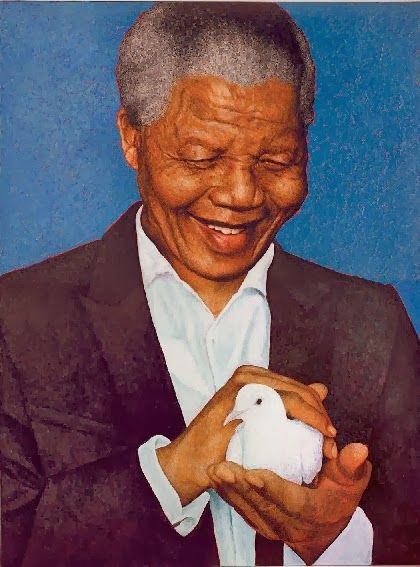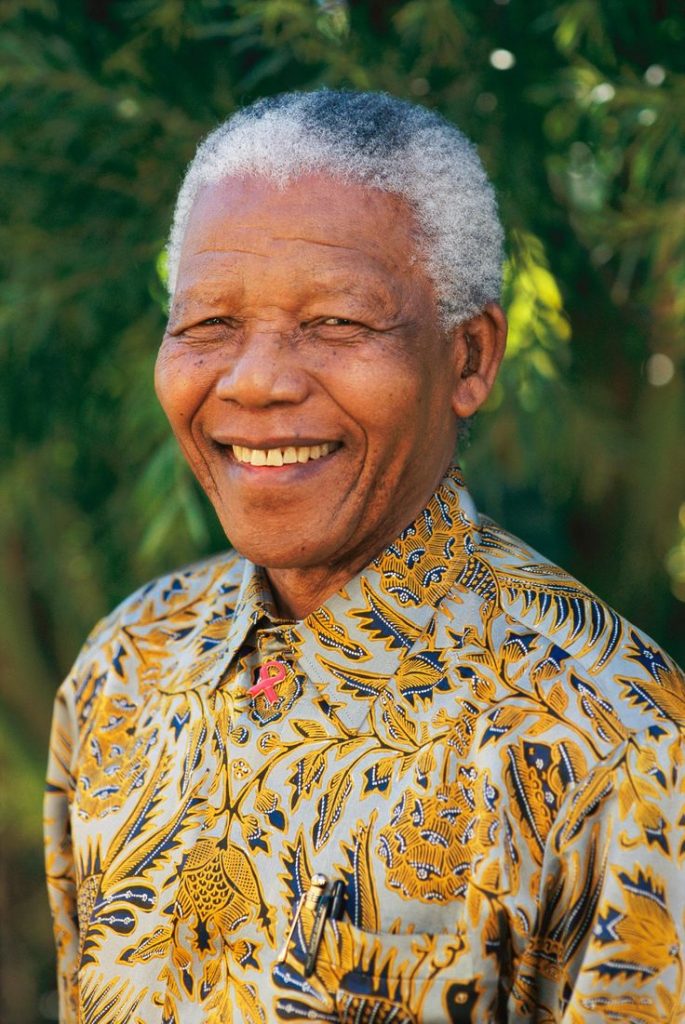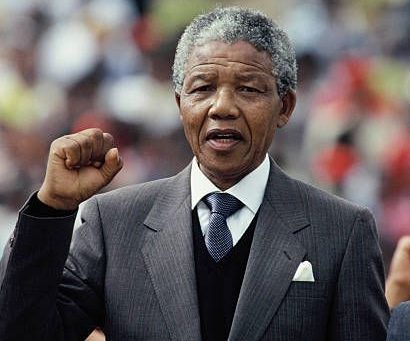Nelson Mandela: A Beacon of Hope and Unity
Nelson Rolihlahla Mandela, the iconic South African leader, is a name that resonates with hope, unity, and the triumph of the human spirit. His life story is one that shows the power of strength and the ability to rise above adversity. Mandela’s constant commitment to equality and justice made him a beacon of hope not only for South Africa but for the entire world.
Early Life and Activism
Growing up in the Thembu royal family, Mandela initially pursued law, and he became involved in anti-colonial and anti-racism activism during his university years. In 1943, he joined the African National Congress (ANC), marking the beginning of his lifelong commitment to the struggle for equality and justice.

“Education is the most powerful weapon which you can use to change the world.”
— Nelson Mandela
Apartheid Resistance and Imprisonment
As apartheid policies intensified in South Africa, Mandela’s activism escalated. He was a key player in the ANC’s defiance campaign and the formation of the armed wing, Umkhonto we Sizwe (“Spear of the Nation”). In 1962, Mandela was arrested and sentenced to life imprisonment for his role in planning sabotage against the apartheid regime.
His 27 years of incarceration, much of it spent on Robben Island, became a symbol of the broader struggle against racial oppression. Mandela’s resilience and steadfast commitment to his principles during these years turned him into a global symbol of resistance.

Long Walk to Freedom
Released from prison on February 11, 1990, Mandela’s emergence symbolized the end of apartheid and the beginning of a new era for South Africa. His “Long Walk to Freedom” included negotiations to dismantle the discriminatory system and establish multiracial elections.
In 1994, Mandela stood as the first black president of South Africa in the country’s inaugural fully representative democratic election. His victory marked a turning point, signaling the end of institutionalized racism and the beginning of a united, democratic nation.
“For to be free is not merely to cast off one’s chains, but to live in a way that respects and enhances the freedom of others.”
— Nelson Mandela
Reconciliation and Nation-Building
One of Mandela’s most remarkable qualities was his commitment to reconciliation. Despite enduring years of injustice, he advocated for forgiveness and unity in post-apartheid South Africa. Mandela’s leadership style emphasized inclusivity and the creation of a “Rainbow Nation,” a term he used to describe a harmonious, multiracial country.
His efforts to establish the Truth and Reconciliation Commission (TRC), headed by Archbishop Desmond Tutu, sought to address the crimes of apartheid and facilitate healing through truth-telling and forgiveness.

Humanitarian Legacy
Beyond his political achievements, Mandela was a humanitarian whose work extended to global issues. He played a crucial role in the establishment of the Nelson Mandela Foundation, focusing on education, HIV/AIDS awareness, and rural development.
“It always seems impossible until it’s done.”
— Nelson Mandela
Mandela’s ability to transcend bitterness and embrace compassion made him a revered figure worldwide. He continued to use his influence to advocate for peace, human rights, and social justice.
Legacy and Global Impact
Nelson Mandela’s legacy is indelibly etched in the hearts of those who witnessed his journey and those who continue to be inspired by his principles. His influence reaches far beyond the borders of South Africa, impacting global discussions on human rights, justice, and the power of reconciliation.

“I am fundamentally an optimist. Whether that comes from nature or nurture, I cannot say. Part of being optimistic is keeping one’s head pointed toward the sun, one’s feet moving forward.”
— Nelson Mandela
Conclusion
In conclusion, Nelson Mandela’s life was a testament to the triumph of hope over adversity, forgiveness over hatred, and unity over division. His journey from prisoner to president resonates as a beacon of inspiration, illustrating the capacity of individuals to transcend personal suffering for the greater good.
Mandela’s enduring legacy challenges us to confront injustice, champion equality, and build a world where compassion triumphs over cruelty. As the world reflects on his contributions, Mandela’s words and actions serve as a guidepost for future generations, encouraging them to stand against oppression and work towards a more just and harmonious world.
Frequently Asked Questions (FAQs)
1. Who was Nelson Mandela?
Nelson Rolihlahla Mandela was a South African anti-apartheid revolutionary, political leader, and philanthropist. Born on July 18, 1918, Mandela became a symbol of resistance against apartheid and went on to become the first black president of South Africa.
2. What is apartheid?
Apartheid was a system of institutionalized racial segregation and discrimination enforced by the South African government from 1948 to the early 1990s. It sought to maintain the supremacy of the white minority and marginalized the majority black population.
3. How did Nelson Mandela contribute to the fight against apartheid?
Mandela played a pivotal role in the fight against apartheid by becoming a prominent member of the African National Congress (ANC) and later the armed wing, Umkhonto we Sizwe. He led campaigns of civil disobedience and was actively involved in resistance against discriminatory laws.
4. What led to Nelson Mandela’s imprisonment?
In 1962, Mandela was arrested and sentenced to life imprisonment for his involvement in planning sabotage against the apartheid regime. He spent 27 years in prison, much of it on Robben Island, before his release in 1990.
5. How did Nelson Mandela contribute to the end of apartheid?
Mandela’s release from prison in 1990 marked the beginning of the end of apartheid. He led negotiations to dismantle the discriminatory system and played a crucial role in establishing multiracial elections. In 1994, Mandela became the first black president of South Africa, marking the official end of apartheid.
6. What is the significance of Mandela’s “Long Walk to Freedom”?
“Long Walk to Freedom” is Nelson Mandela’s autobiography, published in 1994. The book chronicles his life, from childhood to presidency, providing insights into his thoughts, struggles, and vision for a free and democratic South Africa.
7. How did Nelson Mandela promote reconciliation in post-apartheid South Africa?
Mandela advocated for forgiveness and unity in post-apartheid South Africa. He established the Truth and Reconciliation Commission (TRC), which aimed to address the crimes of apartheid through truth-telling and forgiveness. Mandela’s leadership emphasized inclusivity and building a united “Rainbow Nation.”
8. What is the Mandela Day celebration?
Mandela Day is celebrated on July 18th, Nelson Mandela’s birthday, to honor his legacy. It is a global call to action for individuals to dedicate 67 minutes of their time to community service, representing Mandela’s 67 years of public service.
9. What is Nelson Mandela’s global impact?
Nelson Mandela’s impact extends globally. His leadership and commitment to justice, reconciliation, and humanitarian causes inspired people around the world. Mandela’s legacy continues to influence discussions on human rights, equality, and the power of forgiveness.
10. How is Nelson Mandela remembered today?
Nelson Mandela is remembered as an iconic figure who stood against injustice, fought for freedom, and championed reconciliation. His legacy is celebrated globally, and his teachings on forgiveness and unity remain relevant in addressing contemporary social challenges.









